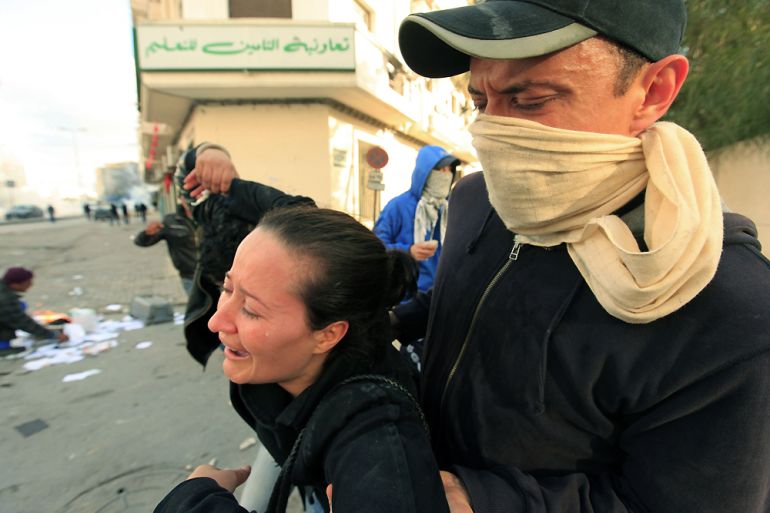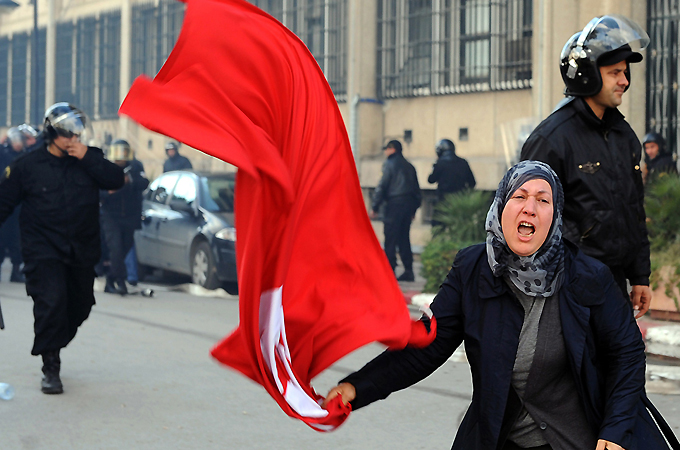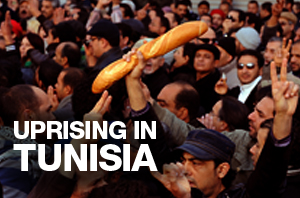World responds to Tunisia uprising
After notable silence by many, world leaders condemn violence against protesters and call for free and fair elections.

 |
| Barack Obama called on the Tunisian government to respect human rights and hold free and fair elections [AFP] |
World leaders have responded to the unrest in Tunisia, that has led to the end of president Zine al-Abidine Ben Ali’s 23-year rule and provided a chance for Tunisians to shape their own future.
Barack Obama, the US president, and Nicolas Sarkozy, the French president, both issued statements late on Friday after Ben Ali fled Tunisia and sought refuge in nearby Saudi Arabia.
Obama and Sarkozy had been criticised by Tunisian and human-rights activists for largely remaining silent about Tunisia protests, which were granted little media coverage in mainstream US media.
Sarkozy and his prime minister, Francois Fillon, were reported to have held a late night meeting on Friday, and subsequently refused to allow Ben Ali to land in France.
However, on Wednesday this week Michèle Alliot-Marie, the French foreign minister, suggested that French police forces could help police in Tunisia “appease the situation through law enforcement techniques”.
Her remarks were also met with widespread disapproval on social media websites, including Twitter and Facebook.
Condemnation
By late Friday evening many world leaders had started responding to the ousting on Ben Ali, calling for free and fair elections in the country.
Obama applauded the courage and dignity of Tunisians and condemned the violence that was used against them.
 |
Sarkozy said that France stood side by side with the Tunisians in this “decisive period” and that it recognised the constitutional transition.
He said only dialogue would bring about lasting and democratic change to Tunisia.
The European Union called for a lasting democratic solution in Tunisia and appealed for calm.
“We want to express our support and recognition to the Tunisian people and their democratic aspirations, which should be achieved in a peaceful way,” Catherine Ashton, the EU chief diplomat, and Stefan Fuele, the enlargement commissioner, said in a statement.
“In this regard, we urge all parties to show restraint and remain calm in order to avoid further casualties and violence,” the joint statement said.
“Dialogue is key. We reiterate our engagement with Tunisia and its people and our willingness to help find lasting democratic solutions to the ongoing crisis.”
The 27-nation EU bloc had criticised the “disproportionate” use of force by police against demonstrators and called for those responsible for the violence to be brought to justice.
Ban Ki-moon, the UN secretary-general, urged restraint, saying “the political situation is developing fast and every effort must be made by all concerned parties to establish dialogue and resolve problems peacefully to prevent further loss, violence and escalations”.
Call for elections
William Hague, the British foreign secretary, condemned the violence and called for free and fair elections.
“I condemn the violence and call on the Tunisian authorities to do all they can to resolve the situation peacefully,” Hague said in a statement.
“I am calling for a rapid return to law and order, restraint from all sides, an orderly move towards free and fair elections and an immediate expansion of political freedoms in Tunisia.”
Qatar expressed respect for the will of the Tunisian people and their choices, an official at the foreign ministry told Qatar News Agency.
Angela Merkel, the German chancellor, termed the situation “very serious”, and said that Germany will “closely monitor the situation and take care of those Germans who are still in Tunisia”.
Western countries urged their people to avoid travel to the popular tourist destination due to the instability, and tour operators say they are now working to evacuate nearly 6,000 holidaymakers from the country.